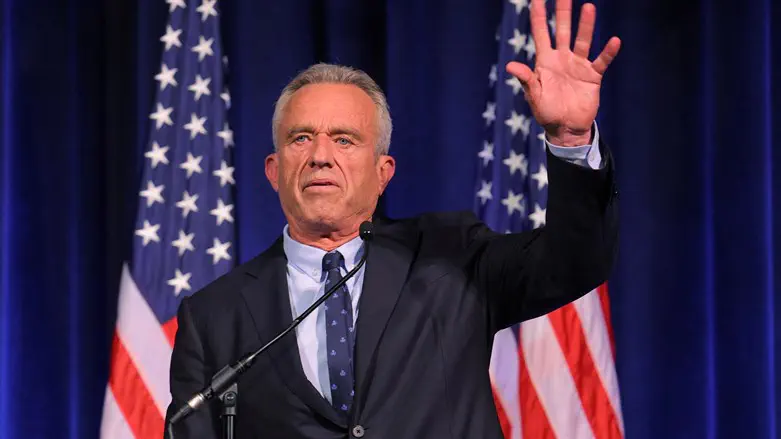
Independent presidential candidate Robert F. Kennedy Jr.’s campaign said in a Pennsylvania court filing on Friday that he is endorsing Donald Trump for President, The Associated Press reported.
The campaign also requested that he be removed from the Pennsylvania ballot.
Later, Kennedy officially announced on Friday that he is suspending his campaign, but “not ending it.”
“I am not terminating my campaign, I am simply suspending it and not ending it. My name will remain on the ballot in most states,” he said, speaking at an event on Friday in Arizona and quoted by CNN.
“In my heart, I no longer believe that I have a realistic path of electoral victory in the face of this relentless, systematic censorship and media control. So I cannot, in good conscience, ask my staff and volunteers to keep working their long hours, or ask my donors to keep giving when I cannot honestly tell them that I have a real path to the White House,” added Kennedy.
Kennedy’s odds of victory were quickly diminishing, as a recent CBS News poll measured his support at just 2%.
Kennedy’s speech came days after his running mate, Nicole Shanahan, said in a podcast interview on Tuesday that the campaign is considering whether to “join forces” with Trump to prevent the “risk” of Vice President Kamala Harris winning the election.
Kennedy and Trump have grown warmer toward each other in recent months after initial attacks earlier in the campaign. Kennedy has frequently criticized Trump for his handling of the COVID-19 pandemic and his implementation of Operation Warp Speed, the program to accelerate the manufacturing of vaccines. Trump previously labeled Kennedy a member of the “radical left” and attacked Kennedy for his environmental activism.
In July, however, Trump and Kennedy spoke on the phone in the days after the assassination attempt against Trump. The day after the call, Kennedy and Trump met in person in Milwaukee on the first day of the Republican National Convention.
Earlier this month, Kennedy’s campaign approached Harris’ campaign about arranging a meeting to discuss endorsing her in exchange for a future role in her administration. That meeting never materialized.
In March, Kennedy offered staunch support for Israel in an interview with Reuters, calling the country a "moral nation" that was justly responding to Hamas provocations with its attacks on Gaza.
Kennedy pointed out that Israel did not choose this war and added that Hamas was to blame for Gaza's destruction for failing to embrace a two-state solution and for firing thousands of missiles into Israeli cities.
"Any other nation that was adjacent to a neighboring nation that was bombing it with rockets, sending commandos over to murder its citizens, pledging itself to murder every person in that nation and annihilate it, would go and level it with aerial bombardment," he told Reuters.
"But Israel is a moral nation. So it didn't do that. Instead, it built an iron dome to protect itself so it would not have to go into Gaza," he added.
Previously, Kennedy came under fire after The New York Post published a video of him floating a conspiracy theory about COVID-19 and Jews.
In the video, Kennedy quoted a theory that COVID-19 was “targeted to attack Caucasians and Black people.” He later added that “the people who are most immune are Ashkenazi Jews and Chinese.”
After he was widely condemned for those remarks, Kennedy appeared before a House committee " where he denied making antisemitic comments.
Kennedy told the committee that he had "never uttered a phrase that was either racist or antisemitic" and, despite repeatedly spreading conspiracy theories and misinformation on public health issues in the past, insisted that he was not anti-vaccination.
(Israel National News' North American desk is keeping you updated until the start of Shabbat in New York. The time posted automatically on all Israel National News articles, however, is Israeli time.)

